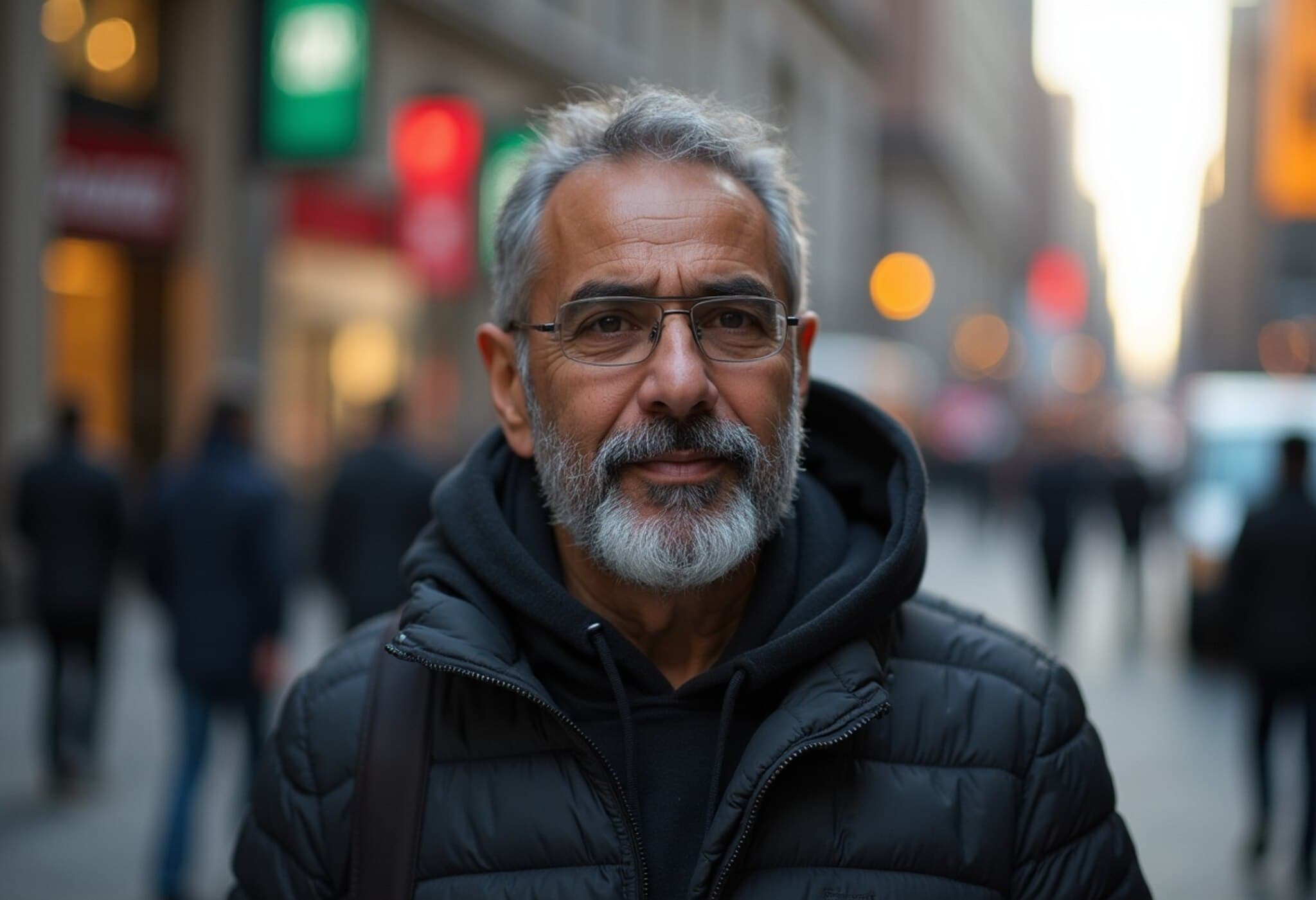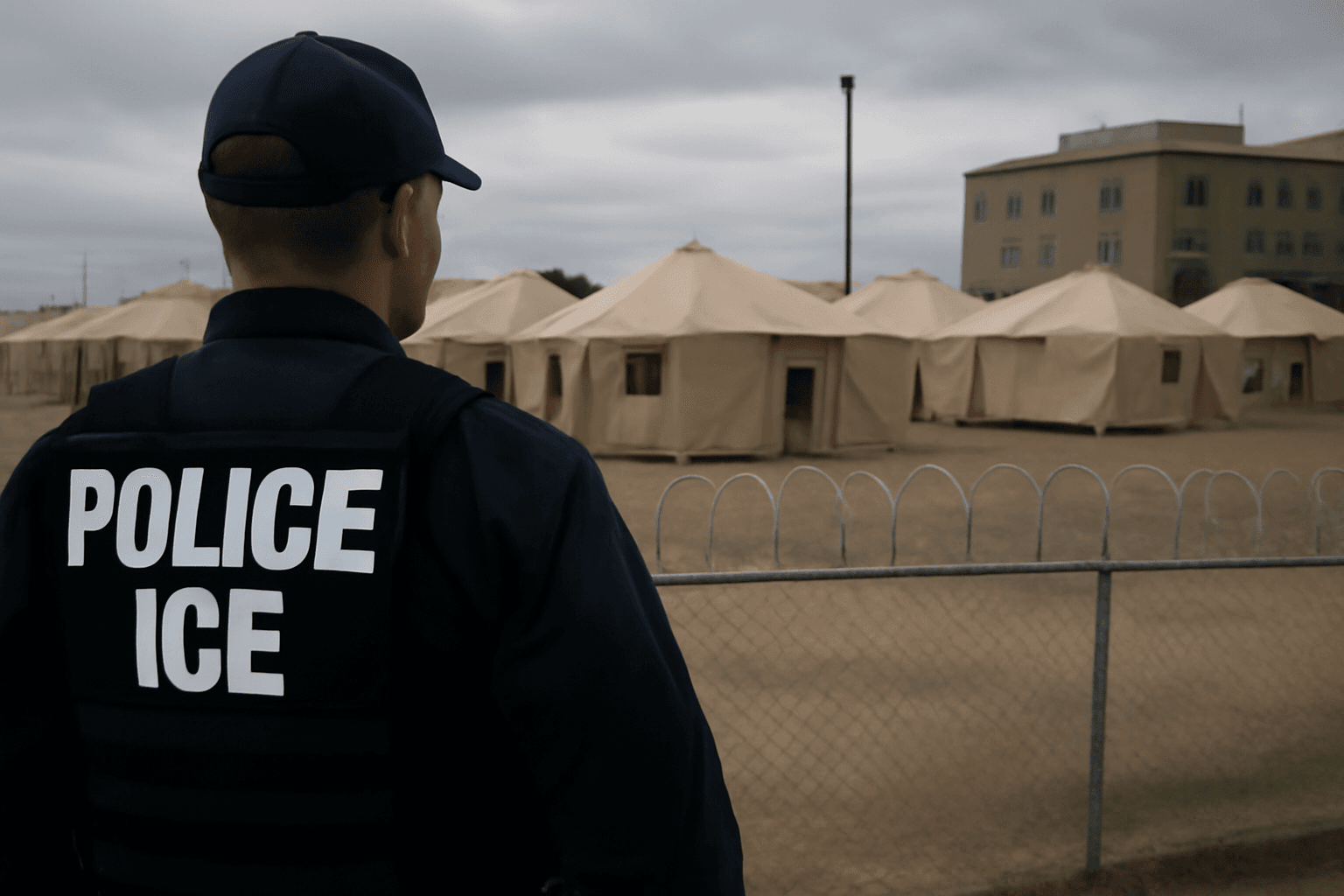Homeland Security Secretary Kristi Noem Engages with Five GOP States on New Detention Facilities
In a press conference held in Florida, U.S. Homeland Security Secretary Kristi Noem revealed ongoing discussions with five Republican-led states interested in establishing migrant detention centers modeled after Florida’s controversial "Alligator Alcatraz" facility.
What is 'Alligator Alcatraz'?
Located approximately 37 miles from Miami, the Alligator Alcatraz is a remote detention center situated in a dense subtropical wetland ecosystem home to alligators, crocodiles, and pythons. Officially designed to manage migrant populations, the facility has drawn national attention for its unique, isolated location and the challenging conditions detainees face.
Noem's Vision and Collaboration with States
Noem emphasized that "several other states" have looked to Alligator Alcatraz as a blueprint for cooperative arrangements with the federal government. Although she declined to name these states, the statement signals a potential expansion of similar detention sites across Republican-controlled regions.
This development raises critical questions about the federal government’s evolving immigration enforcement strategy and its partnership with state governments. The approach signals greater decentralization and potentially harsher detention environments, juxtaposed with ongoing debates regarding humanitarian treatment and immigration reform.
Context and Implications
- Political Dynamics: The collaboration primarily involves Republican states, underscoring partisan divides in immigration policy initiatives.
- Legal and Humanitarian Concerns: Human rights advocates have long criticized facilities like Alligator Alcatraz for their remote locations and safety risks to detainees.
- Environmental Considerations: Incorporating detention centers in ecologically sensitive wetlands might raise concerns about environmental impact and sustainability.
Moreover, this pivot highlights the ongoing challenges facing the Department of Homeland Security as it balances border security with increasing calls for humane immigration policy.
Expert Insight
From a policy analyst’s perspective, the move to replicate the Alligator Alcatraz model may reflect an intent to localize immigration enforcement, shifting some responsibilities to states. While this might streamline operations, it also risks creating a patchwork system with varying standards and accountability levels.
Legal experts note the potential for increased litigation centered on detainee conditions and interstate cooperation nuances. Economically, states taking on detention facilities might bear heightened costs but also could leverage federal funding and job creation opportunities.
Looking Ahead
As discussions continue behind closed doors, stakeholders — from policymakers and civil rights organizations to environmental groups — will closely monitor the proposed expansions. The story of Alligator Alcatraz serves as a stark reminder of the high stakes involved when immigration enforcement intersects with political agendas and human dignity.
Editor’s Note
This announcement invites reflection on the broader immigration policy landscape. How will replicating facilities like Alligator Alcatraz reshape the US approach to detention? Will state-level involvement enhance efficiency or deepen fragmentation and controversy? As the nation grapples with these questions, transparent dialogue and accountability remain paramount.



















